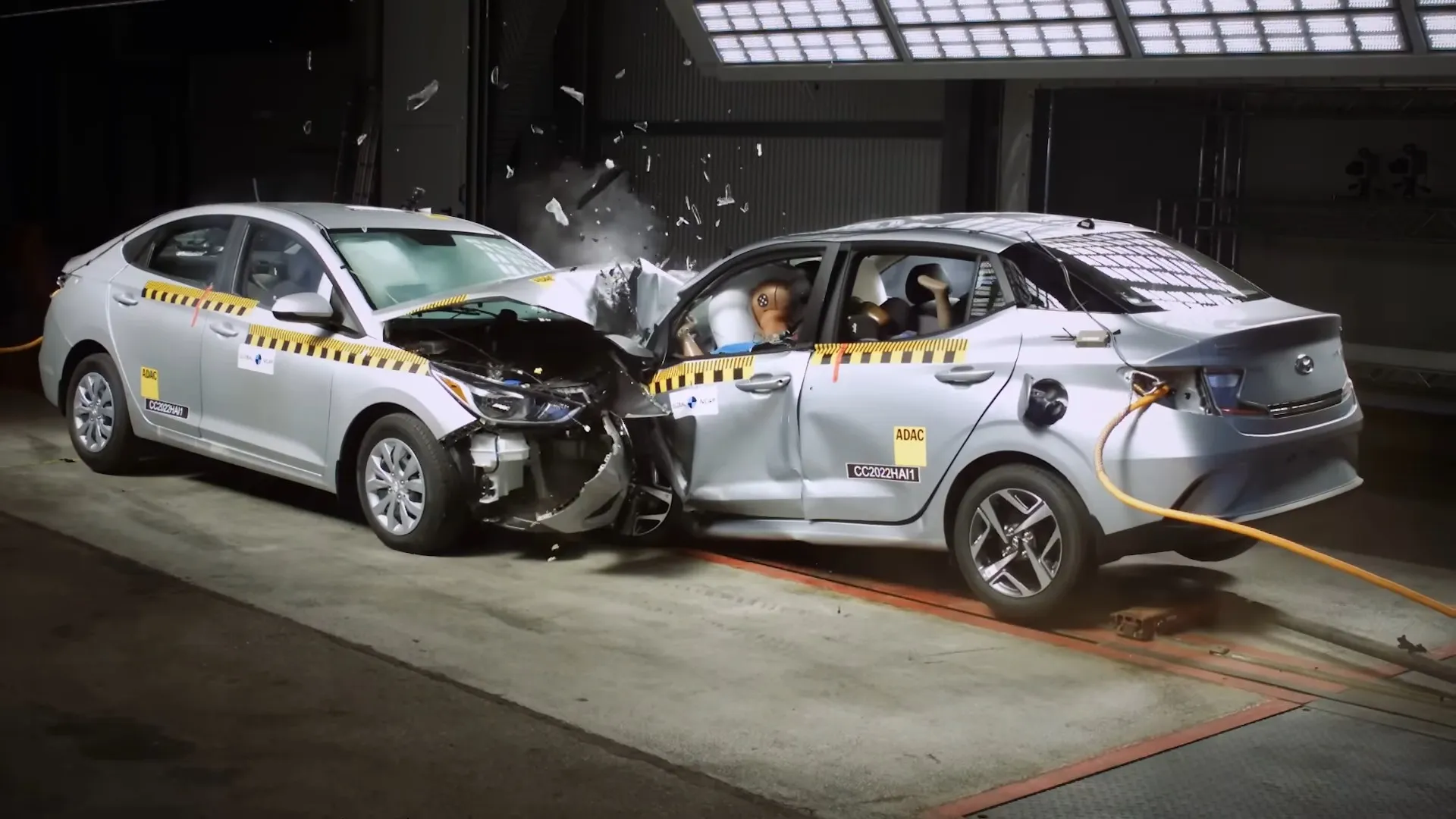SAE J2742 Electric Vehicle Rollover Battery Crash Test
The SAE J2742 test method is specifically designed to evaluate the structural integrity and safety performance of electric vehicle (EV) batteries during rollover crashes. This critical test ensures that EVs meet stringent safety standards by simulating real-world crash scenarios where a vehicle may roll over, thereby exposing the battery pack to significant forces.
The primary goal of this test is to determine whether the battery pack remains intact and prevents electrical shorts or breaches that could lead to fires or explosions. The SAE J2742 protocol mandates the use of a controlled crash scenario that replicates rollover conditions, allowing for the assessment of structural damage and potential failure modes.
The test procedure involves placing an electric vehicle on a specialized testing rig capable of simulating various angles and forces associated with a rollover. The specimen, in this case, is the battery pack installed within the vehicle’s chassis. Prior to testing, the battery must undergo rigorous preconditioning steps to ensure it is fully charged and conditioned for the test.
During the test, the vehicle undergoes controlled rotation until it reaches a predetermined rollover angle. The forces exerted on the battery are monitored using high-precision sensors. After the crash simulation, the battery pack’s structural integrity is evaluated by inspecting for any visible damage or breaches in the casing. Electrical resistance measurements are also taken to ensure there are no internal shorts that could indicate compromised insulation.
The test results are crucial not only for compliance with safety regulations but also for improving vehicle design and enhancing overall passenger safety. By identifying potential weaknesses in the battery packaging, manufacturers can make necessary adjustments to prevent accidents involving electric vehicles. The SAE J2742 protocol is aligned with international standards such as ISO 6469-1:2015, which sets global benchmarks for the testing of electric vehicle batteries.
Our laboratory adheres strictly to these protocols and uses state-of-the-art equipment to ensure accurate and reliable test results. Our team of experts ensures that each test is conducted under controlled conditions, replicating real-world crash scenarios as closely as possible. This approach provides manufacturers with valuable insights into the performance of their EV batteries in critical situations.
The SAE J2742 test is an essential component of the broader safety testing regimen for electric vehicles. By incorporating this test into the development process, manufacturers can identify and mitigate risks associated with battery integrity during rollover events. This not only enhances public confidence but also aligns with regulatory requirements aimed at ensuring the safe operation of electric vehicles.
Applied Standards
The SAE J2742 test is based on several key international standards that guide its methodology and interpretation. These include:
- SAE J2742: This standard provides the specific requirements for rollover crash testing of electric vehicle batteries.
- ISO 6469-1:2015: International Organization for Standardization's guidelines on the testing and evaluation of electric vehicle batteries.
- ASTM F3187: American Society for Testing and Materials standard related to battery integrity during crash events.
The combination of these standards ensures that the SAE J2742 test is conducted in a manner that aligns with global best practices. Compliance with these standards not only enhances the credibility of the test results but also facilitates international trade and collaboration between manufacturers and regulatory bodies.
Scope and Methodology
| Parameter | Description |
|---|---|
| Rollover Angle | The degree of rotation the vehicle undergoes during the test. This angle is critical in simulating real-world rollover scenarios. |
| Force Application | The forces applied to the vehicle during the crash simulation are calibrated to replicate realistic conditions, ensuring accurate data collection. |
| Battery Integrity Assessment | Post-test inspection of the battery pack for any signs of damage or breaches. Electrical resistance tests are performed to check for internal shorts. |
The SAE J2742 test begins with preconditioning the battery pack to ensure it is in optimal condition for testing. This includes charging the battery to a specified level and ensuring that all connections are secure. Once the vehicle is loaded onto the crash rig, it undergoes controlled rotation until it reaches the predetermined rollover angle.
During this process, high-precision sensors continuously monitor the forces applied to the vehicle and the resulting impacts on the battery pack. Post-test, the battery is inspected for any visible damage or breaches in the casing. Additionally, electrical resistance measurements are taken to ensure there are no internal shorts that could indicate compromised insulation.
The results of these tests are meticulously documented and reported according to the SAE J2742 protocol. This documentation serves as a comprehensive record of the test conditions and outcomes, providing valuable insights for both manufacturers and regulatory bodies.
Eurolab Advantages
Our laboratory offers unparalleled expertise in conducting SAE J2742 tests. With state-of-the-art equipment and a team of experienced professionals, we ensure that every test is conducted under the highest standards of accuracy and reliability.
We provide comprehensive services, including:
- Preconditioning services to prepare the battery for testing.
- Controlled crash simulations using our advanced rigging systems.
- Post-test inspections and data analysis to ensure compliance with SAE J2742 standards.
- Comprehensive reporting and certification of test results, ensuring full transparency and traceability.
Our commitment to quality is reflected in our stringent adherence to international standards. We work closely with manufacturers to identify potential risks and provide recommendations for improving battery design and safety features. This collaborative approach ensures that every vehicle produced meets the highest safety standards, thereby enhancing public trust and confidence.





